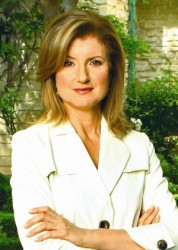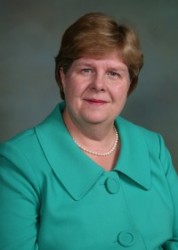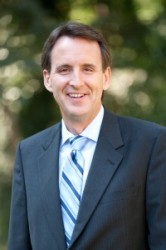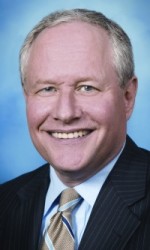
PLEASE NOTE that Arianna Huffington and William Kristol’s talk was rescheduled and took place Monday night.
Arianna Huffington, editor-in-chief of The Huffington Post; Tim Pawlenty, former governor of Minnesota; Christina Romer, former chair of President Obama’s Council of Economic Advisers, and William Kristol, editor of The Weekly Standard, will deliver public lectures at Vanderbilt University March 22-23 as part of the university’s annual Impact Symposium.
The theme of this year’s lectures is “Bridging the Gap: America’s Middle Class.” Romer and Pawlenty will discuss economic policy Tuesday, March 22, at 7 p.m. during a panel titled “Whose Policy is Best?” Huffington and Kristol will have a conversation, “How Does the Media Speak to the Middle Class,” Wednesday, March 23, at 7 p.m. Both events will be held in Vanderbilt’s Langford Auditorium.
Ben Smith, senior political writer for Politico, will serve as moderator for both events. Smith previously was a political columnist for the New York Daily News and started three of New York City’s political blogs – The Polliticker, The Daily Politics and Room Eight.
Tickets are on sale now. General public tickets are $10 at Sarratt box office or any Ticketmaster outlet. Tickets may also be purchased at www.ticketmaster.com or by calling 800-745-3000.

Tickets to the lectures are free to Vanderbilt students, faculty and staff. Only one free ticket may be picked up with a Vanderbilt identification card at the university’s Sarratt Student Center box office.
Non-Vanderbilt students with their college or university identification cards may purchase tickets for $5 at the Sarratt box office or any Ticketmaster outlet only.
Huffington and Kristol’s public conversation will be posted at news.vanderbilt.edu following the event.
Available Impact speakers will also sign books at the Vanderbilt Bookstore at 4 p.m. both days of the symposium.
Romer was a key adviser to President Obama through the economic crisis. She chaired the Council of Economic Advisers from January 2009 to September 2010. The council, an agency within the Executive Office of the President that was established by Congress in the Employment Act of 1946, is charged with offering the president objective economic advice on the formulation of domestic and international economic policy.
After leaving the president’s economic team, she returned to her job as an economics professor at the University of California at Berkeley. She is considered one of the nation’s leading scholars of macroeconomic history and an expert on the Great Depression.

Pawlenty spent two terms as the Republican governor of Minnesota. During the 2008 presidential election he was an early endorser of Sen. John McCain and campaigned heavily for him. According to media reports, he was on the short list to become McCain’s 2008 vice presidential running mate and is frequently mentioned as a possible 2012 presidential candidate. He has been quoted as saying that the Republican Party can do a better job facing working people. In 2001, he coined the phrase “we need to be the party of Sam’s Club, not just the country club.” The term “Sam’s Club Republican” has been associated with him ever since.
Huffington is the author of 13 books and co-host of public radio’s political roundtable program

“Left, Right and Center” and “Both Sides Now,” a weekly syndicated show with Mary Matalin moderated by Mark Green. In 2005 she launched The Huffington Post, which has become one of the most widely read and cited news and blog websites. In 2006, she was named to the “Time 100,” Time magazine’s list of the world’s 100 most influential people.
Kristol helped found The Weekly Standard in 1995 and is a leading political analyst and commentator appearing regularly on
Fox News Sunday and Fox News Channel. Prior to starting The Weekly Standard, he led the Project for the Republican Future. He also served as chief of staff to Vice President Dan Quayle and to Secretary of Education William Bennett under President Ronald Reagan. He has taught politics at the University of Pennsylvania and Harvard University’s Kennedy School of Government.